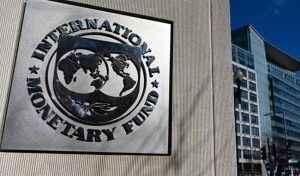Finance ministry says geopolitical risk threatens economic stability
Staff Reporter
ISLAMABAD: Finance ministry on Monday said an escalated conflict between Russia and Ukraine could keep inflationary and balance of payment pressures in the economy for longer as the crisis would likely further increase energy costs and commodities prices.
“The main risk for Pakistan’s economy is that these developments [Russia-Ukraine conflict] may further delay the downward correction in inflation and improvement in the current account balance,” the ministry stated in its monthly economic outlook report.
The Ukraine crisis is a considerable risk factor to the otherwise positive outlook for Pakistan’s economy, according to the report. The report says these tensions may further lift international oil and food prices, as well as other commodity prices outside and beyond their current cycles. The main question is about the potential strength
and duration of this new inflationary factor, the report says. “Although economic recovery is underway, the economy is also confronted with inflation and external sector pressure. The government is taking various policy, administrative, and relief measures to counter the downside risks to the economy,” the report said.
The average year-on-year inflation in the last two months has declined significantly. But in January 2022, international oil prices accelerated again due to geopolitical tensions. Also, international food prices are on the rise. Due to these, month-on-month inflation may increase in February compared to January, but year-on-year, it is expected to decelerate.
The monthly economic indicators (MEI) remained strong in December. This is because of favorable movements in macroeconomic high frequency indicators, especially growth in LSM (large-scale manufacturing). The momentum in the economic dynamism, observed in recent months, is expected to have continued to support economic activity in January.
Thus, MEIs are expected to remain strong in January. According to balance of payment (BOP) data, exports and imports of goods and services declined in January 2022, which was expected as both are usually supported by strong positive seasonal effects in December. In the month of January these seasonal effects typically largely disappear.
Furthermore, trade balance and the remittances are expected to recover in the coming months. As a result, an improvement in the current account balance is foreseen. In the fiscal sector the consolidation efforts remained on track. Despite significant pressure on the expenditure side, prudent spending and effective resource mobilisation strategy is in place for better fiscal outcomes. Pakistan’s economic performance continues to be strong, while its cyclical position is slightly above neutral and the growth rate trend of potential output remains robust.
During the first seven months of this fiscal year, output volume of LSM increased 7.9 percent, compared to the same period last year. The government is taking various measures to control inflationary impact and curtail non-essential imports to counter the downside risks to the economy.








